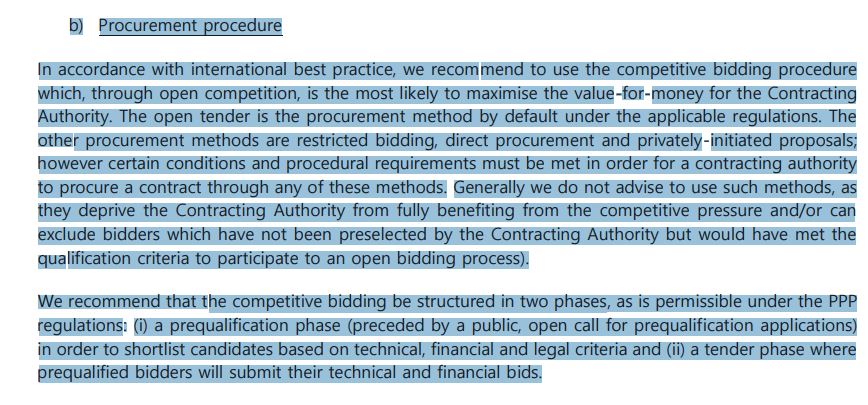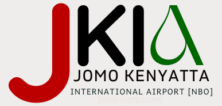In a detailed JKIA Expansion Report released in February, ALG, a global transport and infrastructure consulting firm, recommended an open tendering process for the proposed development of Jomo Kenyatta International Airport (JKIA). The report emphasized that open tendering aligns with best international practices and is the default procurement method under Kenya’s Public-Private Partnership (PPP) regulations. This method ensures transparency, competitive bidding, and ultimately offers the best value for public infrastructure projects.
Open Tender Process Recommended for JKIA Expansion
1. Introduction to the Open Tender Process
ALG recommended an open tender process for the expansion of Jomo Kenyatta International Airport (JKIA). This method, in accordance with international best practices, is designed to maximize value-for-money for the Kenya Airports Authority (KAA) through competitive bidding. Open tendering is the default procurement method under Kenya’s Public-Private Partnership (PPP) regulations. While other methods such as restricted bidding, direct procurement, or privately initiated proposals (PIP) are available, ALG advised against these alternatives as they tend to limit competition and exclude qualified bidders who may offer better value.
2. Competitive Bidding Phases
ALG recommended structuring the competitive bidding process in two phases to ensure thorough vetting and selection of bidders:
- Phase 1: Prequalification – This involves an open, public call for prequalification applications. Candidates are shortlisted based on their technical, financial, and legal credentials.
- Phase 2: Tendering – Prequalified bidders then submit their detailed technical and financial bids. Only those meeting the prequalification criteria advance to this stage, ensuring that all submissions are of high quality.
3. Advertising of the Procurement
Although not mandated by the PPP Act, ALG suggested that KAA should expand advertising beyond local platforms. They recommended using international journals and online platforms to attract a broader pool of highly qualified international bidders, maximizing competition and, ultimately, value for the project.
4. Prequalification and Pre-Selection of Bidders
The prequalification stage requires a request for qualifications that outlines the legal, technical, and financial criteria bidders must meet. The process should allow for clarifications from potential bidders, even though the PPP Act does not specify provisions for this. The pre-selection stage follows, where KAA would ensure compliance with PPP regulations regarding:
- Cancellation of the tender process (only under specific circumstances).
- Consortium rules for joint ventures.
- Competitive dialogue with prequalified bidders to refine proposals before final selection.
5. Evaluation and Selection of Bids
ALG recommended that the evaluation process should first assess the technical bids using either a pass/fail approach or a scoring system. Only bidders passing the technical evaluation would move forward to the financial bid stage. Financial offers are then compared to determine the best value proposition. While the PPP Act does not provide specific evaluation criteria, ALG emphasized that these should be clearly outlined in the tender documents.
6. Content of the PPP Contract
Beyond the minimum contractual provisions required by the PPP Act (e.g., the contract’s maximum duration of 30 years), the Contracting Authority (KAA) retains flexibility in defining the terms of the PPP agreement. This ensures that the contract can be tailored to meet both the financial and operational objectives of JKIA’s expansion while adhering to local legal frameworks.

Why Non-Open Tender Processes Aren’t Recommended for JKIA Expansion
For a major infrastructure project like the expansion of Jomo Kenyatta International Airport (JKIA), procurement choice is key to ensuring value-for-money and transparency. ALG strongly recommended an open tender process, citing risks associated with non-competitive methods such as restricted bidding, direct procurement, and Privately Initiated Proposals (PIP). Here’s why non-open tendering isn’t suitable for JKIA’s expansion:
1. Lack of Competition
Non-open tender methods limit the number of bidders, reducing competitive pressure and potentially leading to higher costs and fewer innovative solutions. In contrast, an open tender process ensures broad participation, encouraging competitive offers and securing better value.
2. Transparency Risks
Methods like direct procurement or restricted bidding increase the risk of favoritism and corruption, as fewer companies are invited to bid. An open tender promotes transparency, accountability, and public trust, especially for a project of this magnitude.
3. Missed Innovation Opportunities
Non-open processes can exclude global firms with cutting-edge expertise, limiting JKIA’s access to new technologies and approaches. Open tendering attracts the best global talent, enhancing the airport’s potential as a world-class hub.
4. Higher Project Costs
Fewer bidders mean less incentive to offer competitive prices, driving up costs. Open tendering fosters cost-effective solutions, ensuring that KAA maximizes its return on investment.
5. Legal and Regulatory Compliance
Open tendering aligns with Kenya’s PPP regulations and international best practices. Non-open methods require specific justifications and conditions, increasing the risk of legal challenges and delays.
6. Public Accountability
Large-scale projects face public scrutiny. Non-open methods can lead to distrust and backlash, while open tendering provides transparency, ensuring the public that the project is managed ethically and efficiently.
Conclusion
For JKIA’s expansion, the open tender process is essential. It promotes competition, ensures transparency, and maximizes value-for-money. Non-open tender methods pose significant risks, including higher costs, reduced innovation, and public distrust. Following ALG’s recommendation will help ensure the successful development of a world-class facility at JKIA.
Adani’s Proposal
Adani Group, in its Privately Initiated Proposal (PIP) and as reported by Citizen TV, opposed the open tendering process, arguing that it would lead to unnecessary delays. In their response, Adani stated:
“Compared to competitive bidding, which is a lengthy and time-consuming process, PIP offers fast track and time-bound procurement. PIP allows terms beyond financial aspects, ensuring citizen welfare.”
Adani’s Privately Initiated Deal: Key Components
Adani’s proposal as reported by Citizen.digital which they initially submitted to the Kenya Airports Authority (KAA), outlined a plan to build, operate, and maintain JKIA facilities for a period of 30 years. The key elements of Adani’s proposal include:
- Operation, Maintenance, and Management: Adani proposed to take over the full operation and management of JKIA, including maintenance and upgrades, as per the Master Plan laid out by KAA.
- Phased Upgrades: The proposal also included plans to upgrade existing facilities first, followed by the construction of a new terminal. However, this phased approach conflicted with KAA’s preference, as KAA wanted the new terminal built first, before any refurbishments to existing facilities were made.
- City-Side Development: Adani’s plan extended beyond the airfield, proposing to develop, operate, and maintain the city side of the airport, effectively taking over functions currently managed by KAA. This would include commercial and real estate development around JKIA.
KAA’s Review and Concerns
In April 2024, after reviewing Adani’s feasibility study, KAA found the proposal to be untenable. The feasibility study report submitted by Adani did not fully meet the criteria for project feasibility and affordability, raising significant concerns:
- Phased Development Discrepancies: KAA’s primary concern was the order in which the infrastructure upgrades would be executed. Adani wanted to refurbish existing facilities first and then build a new terminal, whereas KAA had recommended the opposite—a new terminal should be built first to accommodate growing demand before any refurbishment of old facilities.
- Lack of Comprehensive Feasibility: The financial and technical feasibility of Adani’s proposal did not fully satisfy KAA’s requirements, particularly regarding the long-term sustainability and affordability of the project.
Emerging Controversy: New Developments in 2024
As the Kenyan government was assuring the public that everything was under control, reports emerged indicating that the Adani project might still be in motion despite KAA’s reservations.
- New Company Registered in UAE: On August 7, 2024, a new company, Global Airports Operator L.L.C., was registered in Abu Dhabi, UAE. According to Adani Enterprises’ filing with Indian authorities, this company was specifically created for the purpose of “investment or acquisition for construction, operation, and maintenance of airports outside India.”
- Incorporation of Kenyan Subsidiary: Three weeks later, on August 30, 2024, Adani Enterprises filed another notification with the National Stock Exchange of India, revealing that a new company, Airports Infrastructure PLC, had been incorporated in Kenya as a step-down subsidiary. This move signals Adani’s intent to pursue the JKIA project despite the opposition from KAA.
The Larger Context: Open Tendering vs. Privately Initiated Proposal (PIP)
At the heart of the debate is whether the project should proceed through an open tendering process or a Privately Initiated Proposal (PIP), as favored by Adani.
- ALG’s Recommendation: ALG strongly recommended open tendering, as it ensures a competitive, transparent process where various contractors can bid for the project. Open tendering is the norm in Kenyan PPP regulations, reducing risks related to cost overruns and ensuring better overall outcomes for public infrastructure.
- Adani’s Argument: Adani opposed the open tender process, arguing that PIP offers a faster, more streamlined approach that would allow the project to progress without delays. Their view is that competitive bidding would take too long and might hinder the airport’s urgent need for upgrades. They also argued that PIP would allow for more citizen welfare considerations beyond just financial outcomes.
Conclusion: Weighing Transparency Against Time Efficiency
While Adani’s proposal promises fast-track development and streamlined processes, KAA and ALG remain cautious. ALG’s report highlighted that open tendering is the best way to ensure transparency, competition, and long-term viability for large-scale projects like JKIA. Adani’s move to establish new companies in UAE and Kenya signals a persistent interest in the project, despite KAA’s reservations about the feasibility and order of development phases.
The ongoing debate between a transparent tender process versus a privately initiated deal will ultimately shape the future of JKIA’s development and the role Adani Group may play in its expansion.
